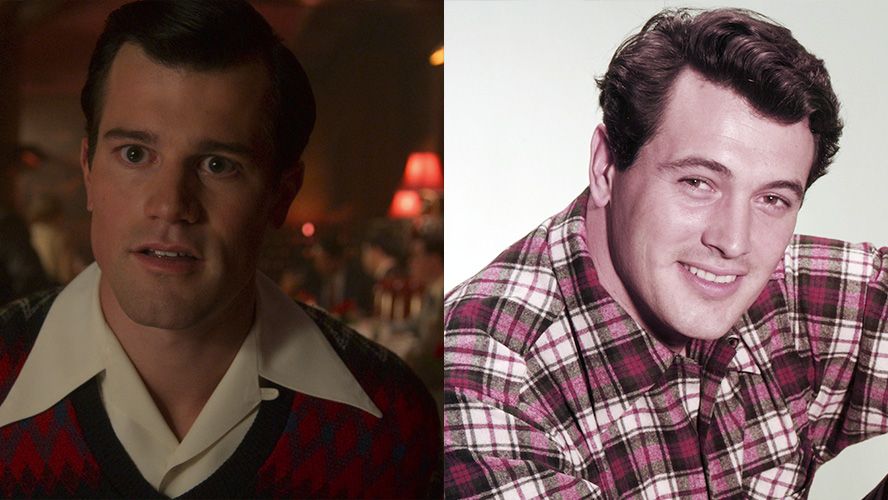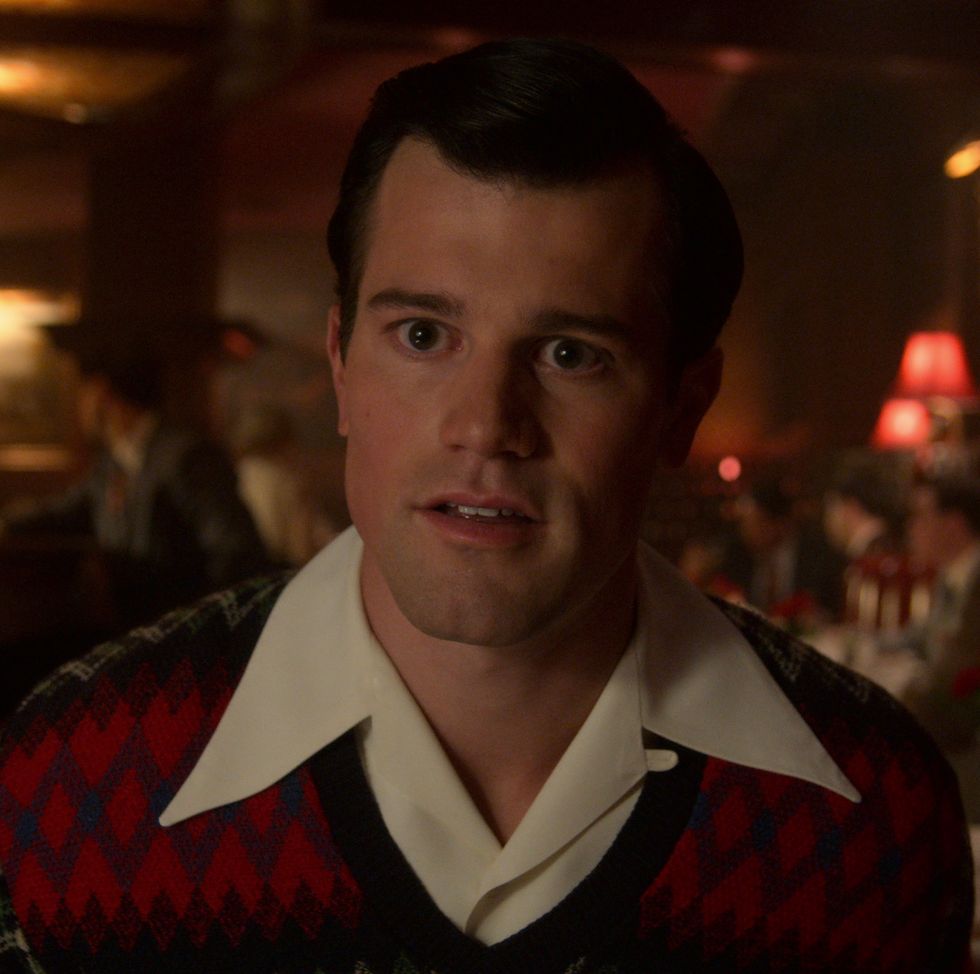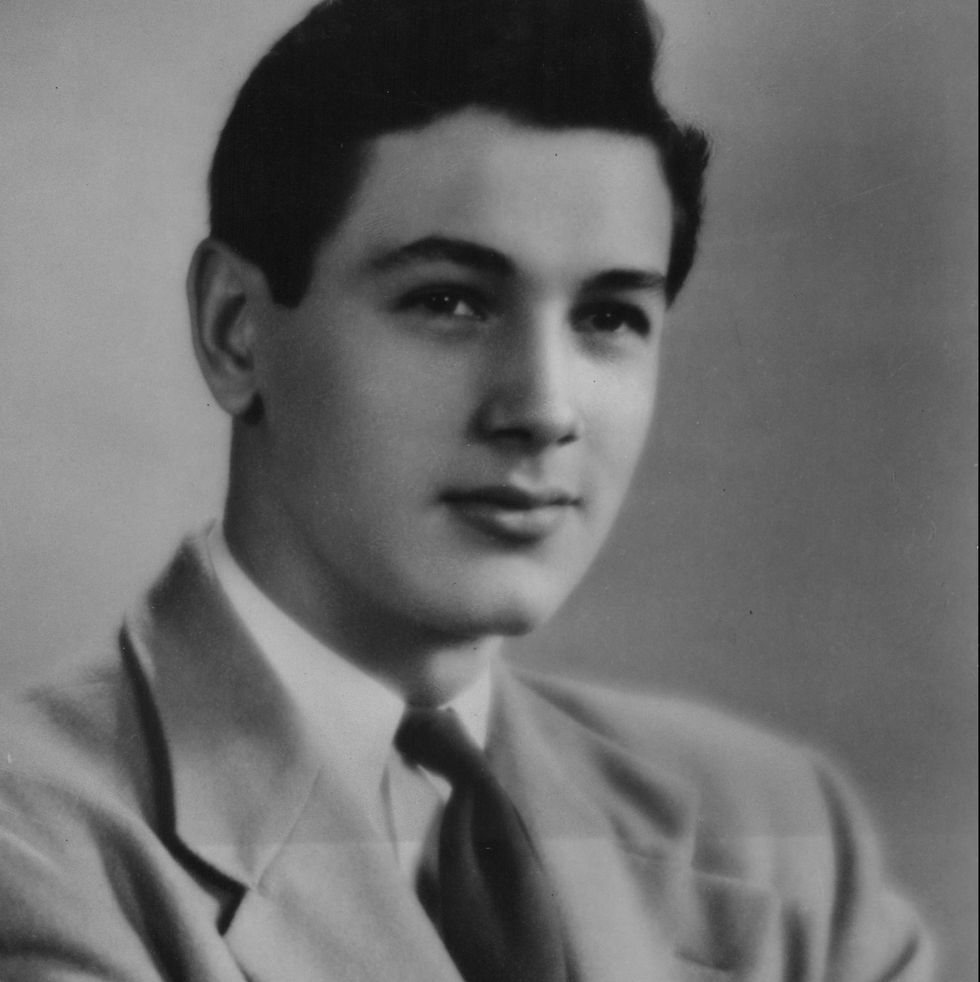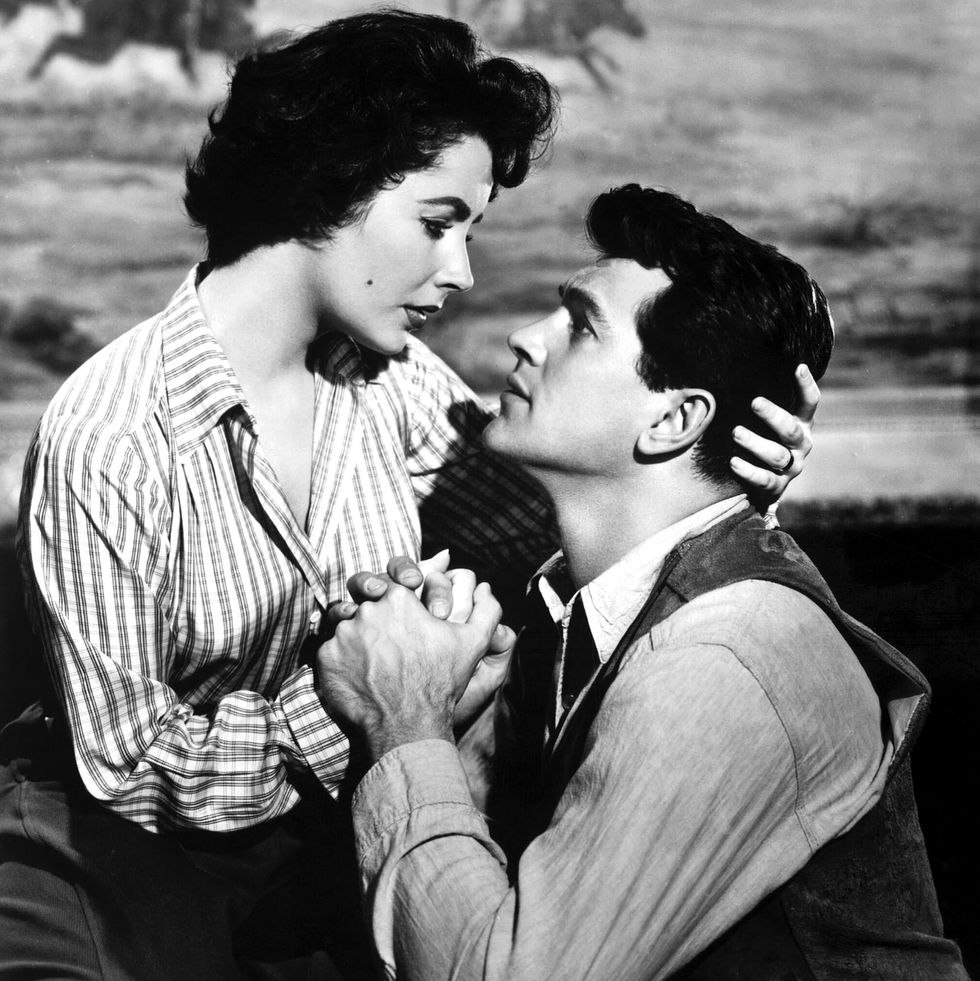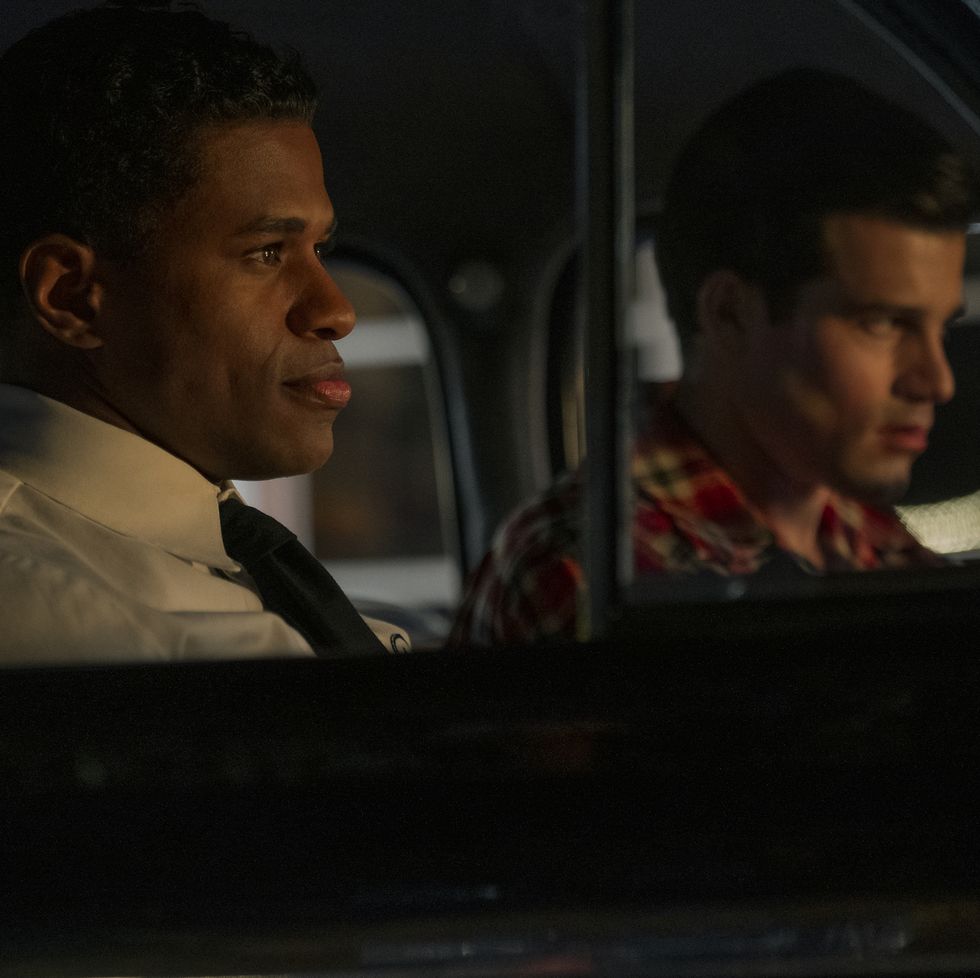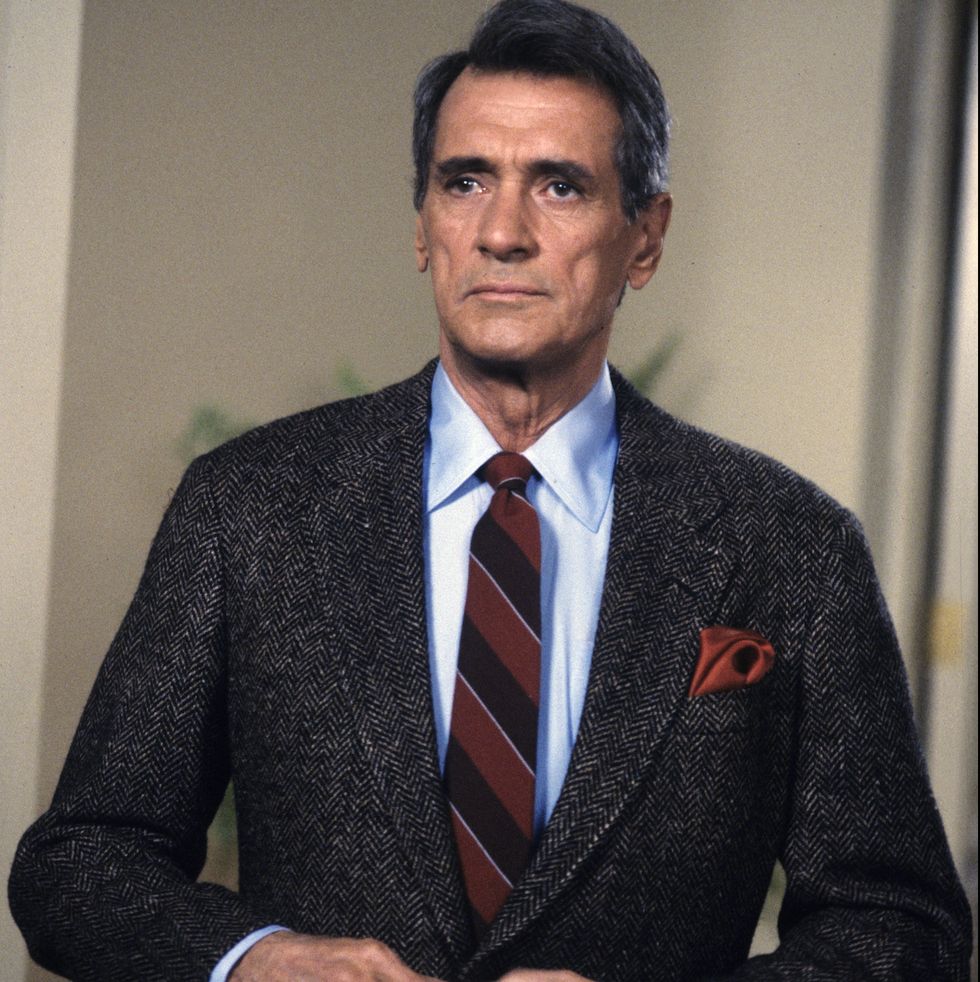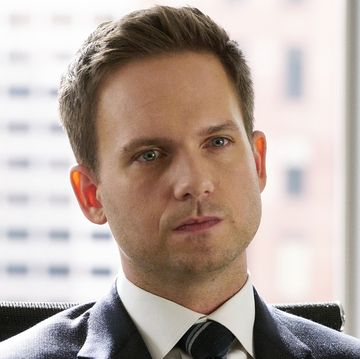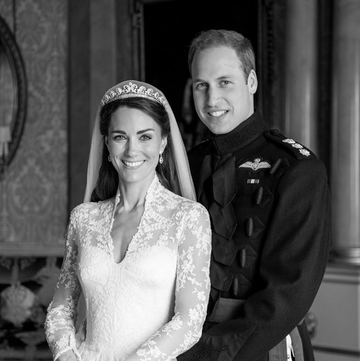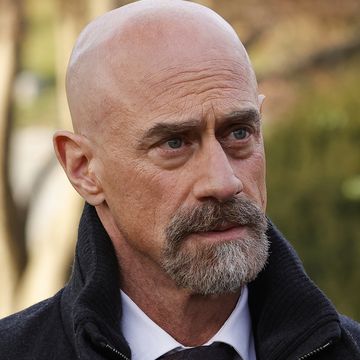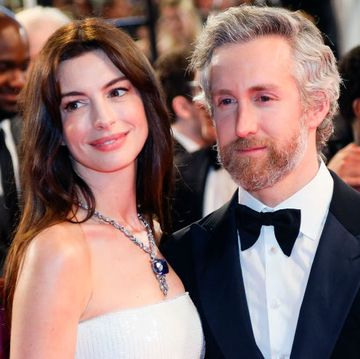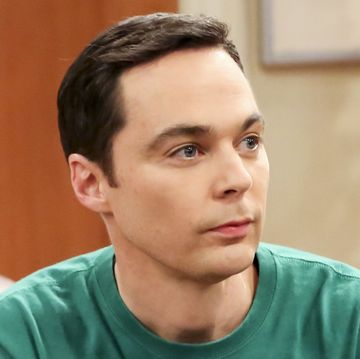- A revisionist version of the life and career of actor Rock Hudson is explored in Netflix's new series Hollywood.
- Rock Hudson is portrayed by Jake Picking in the show, which centers around Tinseltown's golden days.
- Here is the true story of Rock Hudson and how it compares to the character shown in the Netflix series.
Watch Netflix's Hollywood, and you'll be transported into an alternate universe that attempts to reimagine what the Golden Age of filmmaking would've been like if equal opportunities were given to the LGBTQ community, African Americans, and other underrepresented groups.
Because the original series rewrites much of history, the characters' storylines also blend fact and fiction. Notably, when it comes to Rock Hudson (played by Jake Picking), a prominent Hollywood heartthrob and actor who happened to be gay, there were quite a few real-life details omitted from Hollywood's plot.
Starting from the very beginning, Roy Harold Scherer Jr. was born on November 17, 1925 in the small town of Winnetka, Illinois. According to Biography, his father left the family when he lost his job as an auto mechanic in The Great Depression. Roy then ended up adopting the surname of his stepfather, Wallace Fitzgerald, after his mother remarried when he was eight. Unfortunately, Roy was mistreated and neglected by his stepfather while growing up, RadioTimes.com reports.
In 1944, Roy joined the U.S. Navy during World War II. After being discharged in 1946, he left and ventured to Hollywood. There, he was introduced to one of Tinseltown's most powerful (and controversial) figures in the 1940s, Henry Willson (Jim Parsons). True to what's portrayed on Hollywood, Henry was known for his predatory ways in taking young men from troubled backgrounds and turning them into stars. Per Vanity Fair, the talent agent's real-life client list included big names like Robert Wagner, Guy Madison, Troy Donahue, and, of course, Roy, who he rechristened as "Rock Hudson."
"[Henry] was a tormented gay man who preyed on tormented gay men. He would be their manager and make them sexually service him," Hollywood creator Ryan Murphy told the outlet.
Furthermore, it's believed that Henry pressured Rock into marrying Phyllis Gates (Henry's own secretary) in 1955 to keep rumors about his client's sexuality at bay and to further solidify Rock's image in the industry. All the while, Rock was forced to hide his true identity as a gay man.
Author Mark Griffin of Rock's biography entitled All That Heaven Allows once told NPR: "Phyllis did go into the marriage knowing fully, well sort of, what was expected of her and that both Rock and Phyllis were doing this in the name of job security. But whether or not they actually developed some genuine feelings for one another — that, I couldn't say. But some people have suggested that to me."
He also noted, however, that Phyllis maintained in her 1987 memoir My Husband Rock Hudson that she had been duped into the relationship by Henry and Rock. Not long after tying the knot, Phyllis and Rock's marriage ended in divorce in 1958 (Phyllis filed on the grounds of "mental cruelty").
By this time though, Rock's stardom had already been established. Despite having no professional acting training (and, according to The Telegraph, majorly struggling with his lines in his 1948 screen debut Fighter Squadron), Rock found great success in 1954 with his part in the romantic drama Magnificent Obsession. His career skyrocketed even more so when he played opposite Elizabeth Taylor in the 1956 film Giant, for which he earned an Oscar nod in the Best Actor category. Just like that, Rock had become one of Hollywood's biggest stars.
In the '60s and '70s, he transitioned into doing more comedies — like his and Doris Day's Pillow Talk (1959), and Come September (1961) and Send Me No Flowers (1964) — and eventually wound up appearing in a number of TV movies and series.
At the height of Rock's career, we see a fictionalized account of what happened in Hollywood — Rock tells off Henry and comes out as gay while walking the Academy Award red carpet with his screenwriter boyfriend Archie Coleman (a fictional character played by Jeremy Pope). The story ends with Rock playing a gay leading man in a movie.
This never happened in Rock's real life, but Ryan explained to Vanity Fair that he rewrote history in order to give the acclaimed actor a happy ending.
"I thought, what if those people won?" Ryan explained to the magazine. “What if we went back and sort of did a revisionist look, and created an alternative universe where you could win by being gay, you could win by being Black, you could win by being Asian?"
In reality, the real Rock never came out publicly and didn't have another marriage after Phyllis. By 1980, Rock started to have health problems following years of smoking and drinking, per Digital Spy. That same year, he had a heart attack and underwent quintuple heart bypass surgery.
Though he continued to work after his surgery, including scoring a recurring role in the primetime soap opera Dynasty, Rock disclosed his AIDS diagnosis in July of 1985. In many ways, given his prestige in the film industry, his revelation ended up changing the way the AIDS epidemic was received. That same year, Elizabeth Taylor co-founded The Foundation for AIDS Research and regularly lobbied President Reagan and Congress to address the crisis. As playwright William Hoffman once reportedly put it, Rock helped people realize "AIDS is a disease, not a moral affliction."
In September of 1985, Burt Lancaster delivered what would be a bedridden Rock's last words to Hollywood at the AIDS Project Los Angeles's Commitment to Life fundraiser.
"I am not happy that I am sick, I am not happy that I have AIDS," Burt read Rock's words to a dead-silent crowd, according to The Hollywood Reporter. "But if that is helping others, I can, at least, know that my own misfortune has had some positive worth."
The actor died roughly two weeks later at the age of 59.
